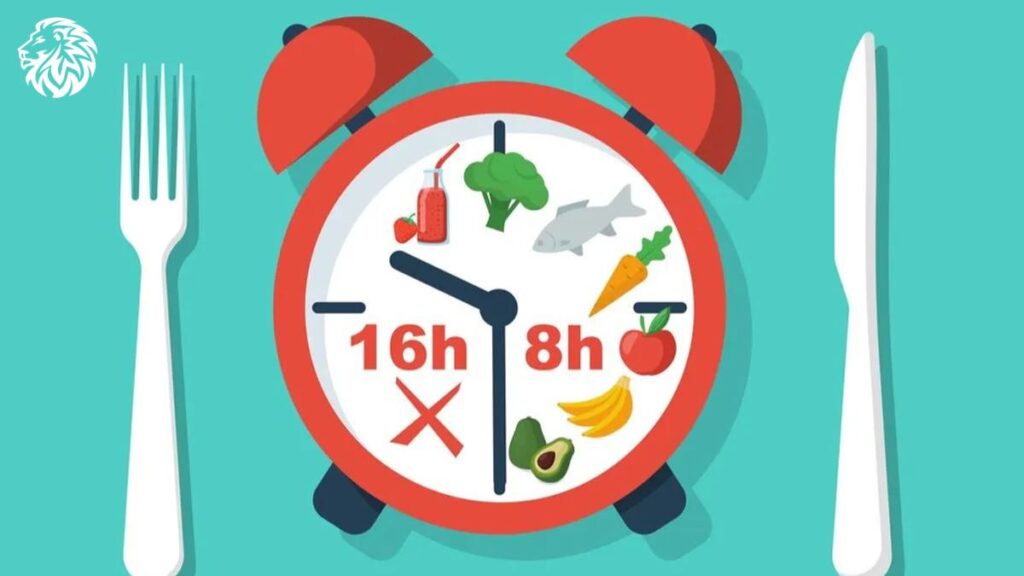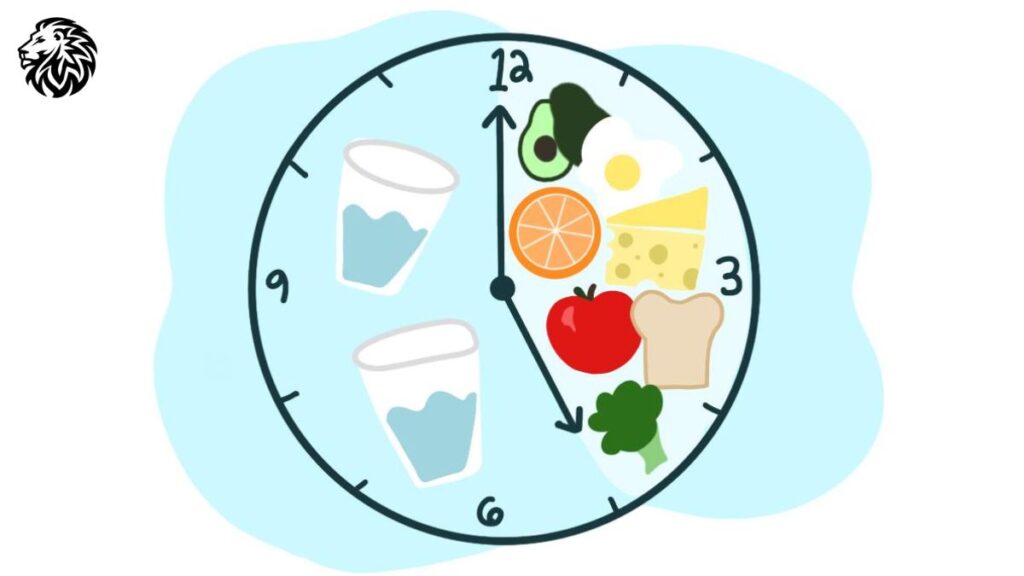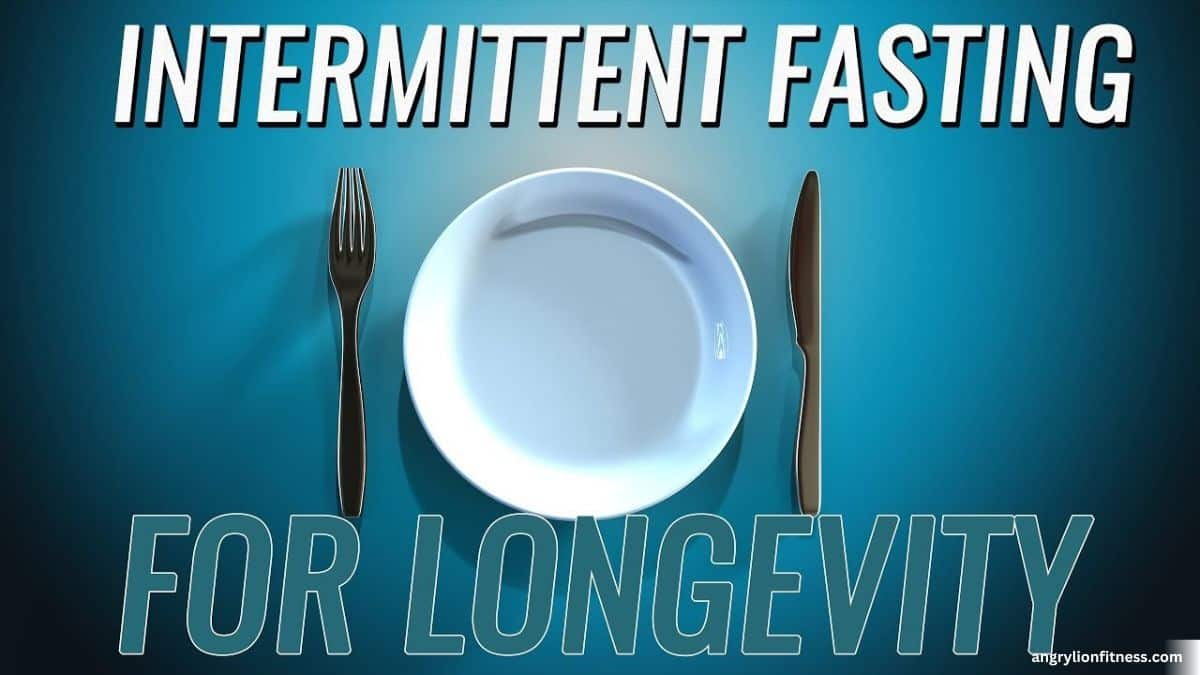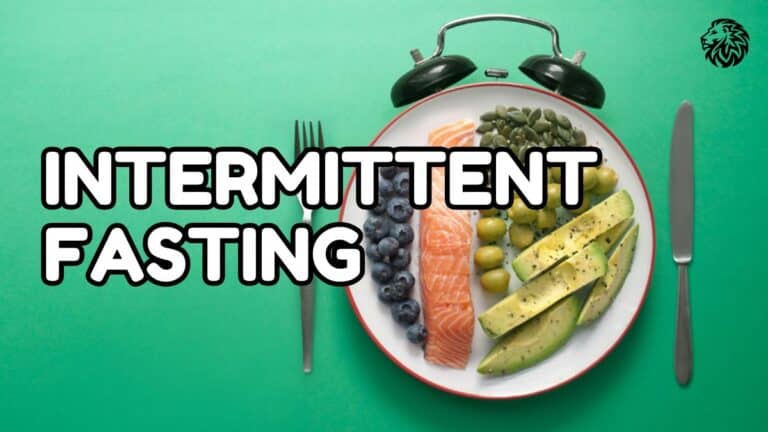In recent years, intermittent fasting (IF) has transcended the realm of dietary trends, emerging as a lifestyle choice embraced by health enthusiasts worldwide. At its essence, intermittent fasting involves alternating cycles of eating and not eating. This simple yet profound shift in eating patterns is not just about abstaining from food; it’s a deliberate timing strategy aimed at optimizing the body’s natural processes. Unlike many diets that focus primarily on what to eat, IF places emphasis on when to eat.
The popularity of intermittent fasting has surged, not merely as a weight loss strategy, but as a method to enhance overall health and potentially extend lifespan. This growing interest is backed by a range of scientific studies that suggest various health benefits, from improved metabolic health to increased longevity.
In this article, we delve into the fascinating intersection of intermittent fasting and longevity. We explore how this age-old practice, which has roots in several cultural and historical traditions, is now being viewed through a modern scientific lens. Our focus is to unravel how intermittent fasting contributes to a longer, healthier life, examining the mechanisms behind its effects on the human body and highlighting the potential long-term benefits for those who incorporate it into their lifestyle. By combining insights from scientific research with practical advice, we aim to provide a comprehensive understanding of how intermittent fasting can be more than just a dietary choice—it can be a pathway to a life of enhanced health and longevity.
Understanding Intermittent Fasting

Definition of Intermittent Fasting
Intermittent fasting (IF) is a dietary approach that cycles between periods of fasting and eating. Unlike traditional diets that focus on what you eat, IF concentrates on when you eat. This method doesn’t prescribe specific foods but rather incorporates regular, short-term fasts into your routine, fundamentally altering the timing of food intake to encourage physiological changes that may not occur with normal eating schedules.
Different Methods of Intermittent Fasting
- 16/8 Method (The Leangains Protocol): Perhaps the most popular form of IF, this method involves fasting for 16 hours each day and eating all your meals within an 8-hour window. For example, one might eat between 12 pm and 8 pm and fast from 8 pm to 12 pm the following day.
- 5:2 Diet (The Fast Diet): This approach involves eating normally for five days of the week while reducing calorie intake to about 500-600 calories on the remaining two days, which should be non-consecutive.
- Eat-Stop-Eat: Developed by Brad Pilon, this involves one or two 24-hour fasts per week, where you don’t eat from dinner one day until dinner the next day.
- Alternate-Day Fasting: In this method, you alternate between days of normal eating and days where you either completely fast or consume very few calories.
- The Warrior Diet: This involves eating small amounts of raw fruits and vegetables during the day and one large meal at night, essentially fasting all day and feasting at night within a four-hour window.
Brief History of Fasting and Its Roots in Various Cultures
Fasting has been practiced for millennia across various cultures and religions, often for spiritual and health reasons. Ancient Greek philosophers like Hippocrates and Plato praised the benefits of fasting. It’s also integral to spiritual practices in religions like Christianity (Lent), Islam (Ramadan), Judaism (Yom Kippur), and Buddhism. Historically, these fasts were not necessarily about health but were more spiritual or ritualistic. However, these practices laid the groundwork for the modern interpretation of fasting as a tool for improving health and extending lifespan. The concept of intermittent fasting, specifically for health benefits, gained traction in the scientific and health communities in the late 20th and early 21st centuries, evolving from these ancient practices into a method studied for its potential to improve metabolic health, increase lifespan, and enhance physical and mental well-being.
Scientific Basis of Intermittent Fasting and Longevity

Overview of Research Linking IF to Longevity
The scientific investigation into intermittent fasting (IF) and its impact on longevity has produced compelling results. Numerous studies, primarily on animal models but increasingly in human trials, indicate that IF can extend lifespan and improve health markers associated with aging. For instance, research in rodents has consistently shown that IF can increase lifespan substantially. In humans, while direct evidence of increased lifespan is more challenging to establish, IF has been linked to improved biomarkers associated with longevity, such as reduced inflammation, improved lipid profiles, and enhanced cellular repair processes.
Cellular and Metabolic Changes During Fasting
- Autophagy: One of the most significant cellular responses to IF is autophagy, a process where cells remove damaged components, allowing for the recycling of cellular materials and the generation of energy. This process is crucial for cellular maintenance and protection against diseases, including neurodegenerative disorders and cancer. Enhanced autophagy is linked to increased lifespan and better health.
- Improved Insulin Sensitivity: IF has been shown to improve insulin sensitivity, reducing the risk of type 2 diabetes, a major age-related disease. During fasting periods, blood levels of insulin drop significantly, which facilitates fat burning and reduces inflammation.
- Hormonal Adjustments: Hormones like growth hormone experience significant fluctuations during fasting. For instance, growth hormone levels can increase as much as five-fold, aiding in fat loss and muscle gain. These hormonal changes are also believed to play a role in longevity.
- Gene Expression: Fasting influences gene expression related to protection against diseases and the aging process. Studies have shown changes in the function of genes related to longevity and protection against disease.
Impact of IF on Age-Related Diseases and Conditions
Research suggests that IF can have a positive impact on several age-related diseases and conditions:
- Neurological Health: IF may benefit brain health by reducing oxidative stress, inflammation, and the accumulation of protein aggregates associated with Alzheimer’s and Parkinson’s diseases.
- Cardiovascular Health: Regular fasting is associated with lower risk of coronary artery disease and diabetes, likely due to improved blood pressure, cholesterol levels, and triglycerides.
- Cancer: Some studies suggest that IF can decrease cancer risk, although more research is needed in this area.
- Metabolic Health: Improved metabolic efficiency and reduced risk of metabolic diseases are closely associated with IF, particularly due to better insulin sensitivity and weight management.
In summary, the scientific basis for IF’s role in promoting longevity and reducing age-related diseases is multifaceted. It encompasses a range of biological processes, from cellular repair mechanisms like autophagy to systemic changes such as improved insulin sensitivity and hormonal balance. These changes contribute to a reduced risk of chronic diseases and potentially a longer, healthier life. However, it’s important to note that most studies to date have been short-term, and long-term effects in humans are still a subject of ongoing research.
Intermittent Fasting and Weight Management

How IF Aids in Weight Loss and Management
Intermittent fasting (IF) aids in weight loss and management primarily through the regulation of energy balance and hormonal adjustments. By restricting the eating window, IF naturally leads to a reduction in calorie intake for many individuals, as long as they don’t compensate by eating much more during the eating periods. This caloric deficit is essential for weight loss.
Additionally, IF influences several key hormones involved in weight control:
- Insulin: Fasting periods help lower insulin levels, which facilitates fat burning over fat storage.
- Human Growth Hormone (HGH): Levels of HGH can skyrocket during fasting, increasing as much as five-fold. This hormone aids in fat loss and muscle gain.
- Norepinephrine: Fasting stimulates the sympathetic nervous system, leading to increased norepinephrine production, which can enhance the body’s ability to break down fat for energy.
Moreover, IF shifts the body’s metabolism from relying on glucose for energy to a state of ketosis, where it begins to break down fat stores, a process that is conducive to weight loss.
Comparison with Traditional Dieting Methods
Traditional diets often focus on what to eat and calorie restriction, while IF focuses on when to eat. Unlike many diets that require constant calorie counting and food restrictions, IF provides a more flexible approach to eating.
Key differences include:
- Sustainability: Many find IF more sustainable in the long term compared to traditional diets, as it doesn’t involve constant calorie counting or eliminating food groups.
- Metabolic Rate: Some traditional diets can cause a decrease in metabolic rate, making it harder to lose weight over time. IF, particularly short-term fasting, has been shown to actually increase the metabolic rate by 3.6-14%, helping to burn more calories.
- Simplicity: IF is often seen as simpler and easier to follow than many diets because it doesn’t require detailed tracking of macronutrients or calories.
Personal Stories or Case Studies
Numerous personal success stories highlight the effectiveness of IF in weight management. For instance, a case study might feature an individual who, after struggling with traditional diets, turned to IF and experienced significant weight loss, improved energy levels, and better overall health. Another story could involve someone who adopted the 16/8 method, leading to not only weight loss but also improvements in blood sugar control and cardiovascular health.
These anecdotes, while not scientific evidence, provide real-life examples of how IF can be integrated into diverse lifestyles and how its flexibility can lead to successful, sustainable weight management. They also underscore the importance of personalizing IF approaches to suit individual preferences and health goals.
Additional Health Benefits of Intermittent Fasting

Cognitive Improvements and Brain Health
Intermittent fasting (IF) has been linked to several cognitive and brain health benefits:
- Neuroprotection: IF can enhance brain health by reducing oxidative stress, inflammation, and the accumulation of harmful proteins, which are factors in Alzheimer’s and Parkinson’s diseases.
- Brain-Derived Neurotrophic Factor (BDNF): Fasting increases levels of BDNF, a protein that plays a vital role in learning, memory, and the growth of new neurons, potentially reducing the risk of depression and other mental health disorders.
- Improved Brain Function: Animal studies suggest that IF may improve cognitive function and protect against age-related cognitive decline.
Enhanced Heart Health and Reduced Risk of Chronic Diseases
IF has several benefits for heart health and can reduce the risk of chronic diseases:
- Cardiovascular Health: Fasting can improve numerous heart-related risk factors, including blood pressure, cholesterol levels, triglycerides, inflammatory markers, and blood sugar levels.
- Diabetes Prevention: By enhancing insulin sensitivity and reducing blood sugar levels, IF can lower the risk of type 2 diabetes, a major risk factor for heart disease.
- Cancer Risk Reduction: Some research suggests that IF may reduce the risk of cancer, although more studies are needed for definitive conclusions. The potential mechanisms include reduced inflammation and a decrease in the growth factors associated with tumor development.
Immune System Benefits
Intermittent fasting can also have positive effects on the immune system:
- Cellular Repair and Immune Regulation: During fasting, cells initiate a waste-removal process called autophagy, which is crucial for healthy immune function. Autophagy helps to eliminate damaged cells, potentially reducing the risk of autoimmune diseases and enhancing the body’s resistance to infections.
- Reduction of Inflammation: IF can decrease markers of inflammation, a key contributor to many chronic diseases and immune dysfunctions.
- Resilience to Stress: Fasting increases cellular stress resilience, which can enhance the body’s defense mechanisms against various stressors and infections.
Overall, intermittent fasting goes beyond weight management to offer a range of health benefits. By positively affecting brain function, heart health, and immune responses, IF presents a promising lifestyle intervention for improving overall health and reducing the risk of several chronic diseases.
Practical Tips for Implementing Intermittent Fasting

How to Start IF Safely and Effectively
- Choose the Right Method: Start by selecting an IF method that aligns with your lifestyle and health goals. For beginners, the 16/8 method is often recommended as it’s relatively easy to follow.
- Gradual Transition: Ease into fasting. If you’re used to eating breakfast, try delaying it for an hour or two and gradually increase the fasting period over time.
- Stay Hydrated: Drink plenty of water throughout the day. Herbal teas and black coffee are also generally permitted during fasting periods.
- Balanced Diet During Eating Windows: Focus on nutrient-dense foods during eating periods. A balanced diet rich in vegetables, fruits, lean proteins, and whole grains can enhance the benefits of IF.
- Listen to Your Body: Be mindful of how your body responds. If you feel weak or dizzy, consider adjusting your fasting window or consult with a healthcare provider.
Common Challenges and How to Overcome Them
- Hunger Pangs: Hunger is a common challenge, especially in the beginning. Drinking water, herbal tea, or black coffee can help. Also, staying busy can take your mind off hunger.
- Social Eating: IF can be challenging when it comes to social events. Plan your fasting windows around your social calendar or allow yourself some flexibility on special occasions.
- Fatigue or Irritability: These can occur initially due to changes in blood sugar levels. Ensure you’re eating a balanced diet during your eating window and getting adequate sleep.
Tips for Integrating IF into a Busy Lifestyle
- Plan Ahead: Planning your meals can help you make the most of your eating window and ensure you’re consuming sufficient nutrients.
- Utilize Your Fasting Window: Schedule demanding tasks or workouts during your fasting state, when many people experience increased energy and focus.
- Be Flexible: Flexibility is key. If a 16-hour fast is too challenging, start with a smaller fasting window and gradually increase it.
- Use Technology: Various apps can help you track your fasting windows and remind you when to start and stop eating.
- Combine with Other Healthy Habits: Pair IF with other healthy habits like regular exercise and stress management for maximum benefits.
Remember, intermittent fasting is a significant change to your eating patterns and may not be suitable for everyone. It’s crucial to consult with a healthcare professional before starting. Especially if you have underlying health conditions, are pregnant, or are under 18.
Addressing Common Myths and Misconceptions

Myth 1: IF Leads to Starvation Mode
- Reality: Many people fear that intermittent fasting will trigger ‘starvation mode,’ where metabolism slows down significantly to conserve energy. However, short-term fasting actually increases metabolic rate through enhanced norepinephrine secretion. Starvation mode is more likely to occur in cases of prolonged, severe calorie restriction, not short-term fasting cycles like those in IF.
Myth 2: IF Causes Muscle Loss
- Reality: The belief that IF leads to muscle loss is another common misconception. While weight loss can sometimes involve muscle loss, studies show that IF, particularly when combined with resistance training, can help preserve muscle mass. This is partly due to increased growth hormone production during fasting periods.
Myth 3: IF is Suitable for Everyone
- Reality: While IF can offer various health benefits, it’s not suitable for everyone. Certain groups should avoid IF or approach it cautiously:
- Pregnant and Breastfeeding Women: They require sufficient nutrients for the baby’s growth and their own health.
- Individuals with a History of Eating Disorders: IF can trigger unhealthy eating patterns.
- Those with Certain Medical Conditions: People with diabetes, particularly those on insulin or blood sugar-lowering medications, and individuals with a history of heart conditions should consult a healthcare provider before starting IF.
- Children and Teenagers: They need adequate nutrition for growth and development.
Myth 4: IF is Just Another Diet Fad
- Reality: Although IF has gained popularity recently, it’s more than a diet trend. It’s rooted in practices observed throughout human history and across cultures. The benefits of IF go beyond weight loss, encompassing improvements in metabolic health, brain function, and potentially longevity.
Myth 5: You Can Eat Whatever You Want During IF
- Reality: Some believe that you can eat whatever you want during the eating windows in IF. However, for optimal health benefits and weight management, it’s important to maintain a balanced and nutritious diet. Eating high-calorie, nutrient-poor foods can negate the benefits of fasting.
Myth 6: IF Works the Same for Everyone
- Reality: The effects of IF can vary based on individual factors like age, gender, health status, and lifestyle. It’s important to personalize the approach and adjust it based on personal goals and responses.
Personalizing Intermittent Fasting

How Individual Differences Affect IF Experiences and Results
- Genetic Factors: Genetic makeup can influence how an individual’s body responds to fasting. For instance, some people may experience more significant changes in metabolism or feel more energized during fasting, while others may not.
- Age and Gender: Age and gender play a role in how the body responds to IF. For example, hormonal differences mean that men and women may experience different benefits and challenges with IF. Moreover, the body’s response to fasting can change with age.
- Health Status: Pre-existing health conditions, such as diabetes, heart disease, or hormonal imbalances, can significantly impact the experience and outcomes of IF. These conditions may require specific adjustments to fasting protocols.
- Lifestyle Factors: Activity levels, sleep patterns, and stress levels can all influence how someone responds to IF. For example, highly active individuals might need a shorter fasting window or more nutrient-dense eating periods to maintain energy and performance.
Tailoring IF to Personal Health Goals and Lifestyles
- Determine Your Health Goals: Are you practicing IF for weight loss, improved metabolic health, enhanced cognitive function, or longevity? Your primary goal will shape how you approach IF.
- Consider Your Schedule: Choose a fasting method that aligns with your daily routine. For example, if you’re not a breakfast person, the 16/8 method might work well. If you have a flexible schedule, alternate-day fasting might be feasible.
- Listen to Your Body: Pay attention to how your body responds during the fasting period. If you feel excessively tired, irritable, or weak, you may need to adjust your fasting window or what you eat during feeding times.
- Adjust Gradually: Start with a less aggressive fasting approach and gradually increase the fasting window as your body adapts.
- Mindful Eating: Focus on nutrient-rich foods during eating windows to ensure you are getting enough vitamins, minerals, and other nutrients.
- Consult with Professionals: Especially for those with health conditions, consulting with healthcare professionals before starting IF is crucial. They can provide guidance tailored to your health status and needs.
Personalizing IF requires a thoughtful approach, considering individual factors and lifestyle. It’s not a one-size-fits-all solution, and what works for one person may not work for another. The key is to find a balance that achieves your health goals while being sustainable and enjoyable for your lifestyle.
Conclusion
Intermittent fasting (IF) stands out as a compelling approach to health and wellness, offering a unique blend of traditional practices and modern scientific understanding. The potential of IF to enhance longevity and overall health is supported by a growing body of research. From its ability to promote weight management and improve metabolic health to its potential impact on brain function, heart health, and immune system resilience, IF presents a multifaceted approach to improving quality of life and extending healthspan.
However, it’s crucial to approach IF with mindfulness and informed caution. This practice, while beneficial for many, is not a universal solution. Individual responses to fasting can vary greatly based on genetic makeup, age, gender, health status, and lifestyle. Therefore, it’s essential to tailor IF to personal needs and goals, adjusting fasting protocols to align with individual health conditions and daily routines.
Before embarking on an intermittent fasting journey, it is advisable to consult with healthcare professionals. This is especially important for individuals with pre-existing health conditions, pregnant or breastfeeding women, and those with a history of eating disorders. Professional guidance can ensure that IF is practiced safely and effectively, aligned with one’s health needs and goals.
Ultimately, the sustainable nature of IF as a lifestyle change lies in its flexibility and adaptability. Unlike rigid diets that often lead to cycles of restriction and overeating, IF offers a way of eating that can be adjusted and integrated into various lifestyles, making it a sustainable choice for long-term health and well-being.
In conclusion, intermittent fasting represents not just a dietary choice but a potential paradigm shift in how we approach eating, health, and longevity. With its roots in ancient practices and its branches reaching into modern science, IF stands as a testament to the enduring quest for a healthier, longer life.
Frequently Asked Questions
1. FAQ: Can intermittent fasting affect my sleep patterns?
Answer: Yes, intermittent fasting can affect sleep patterns, especially when you first start. Some people may find it harder to fall asleep or stay asleep due to changes in hunger hormones like ghrelin. However, over time, many adjust and find their sleep quality improves due to factors like reduced late-night snacking. It’s important to adjust your fasting schedule if sleep disturbances persist.
2. FAQ: Is it safe to exercise while fasting?
Answer: Yes, it’s generally safe to exercise while fasting, and some people even report feeling more energized during workouts. However, the response to exercise during fasting can vary. If you’re new to fasting, start with light to moderate exercise to see how your body responds. Listen to your body, and if you feel weak or dizzy, consider adjusting your workout intensity or timing.
3. FAQ: Can I drink coffee or tea during the fasting period?
Answer: Yes, you can drink coffee and tea during fasting, as long as they’re calorie-free. This means avoiding sugar, milk, or cream. Black coffee, green tea, and herbal teas are popular choices that can also help suppress hunger.
4. FAQ: Does intermittent fasting lead to nutrient deficiencies?
Answer: Intermittent fasting, when done correctly, should not lead to nutrient deficiencies. It’s crucial to consume nutrient-dense foods during your eating windows. This includes a variety of fruits, vegetables, proteins, whole grains, and healthy fats. If you’re concerned about nutritional balance, consulting a dietitian can be helpful.
5. FAQ: How quickly can I expect to see results from intermittent fasting?
Answer: The timeline for seeing results from intermittent fasting varies from person to person. Factors like the fasting method, starting weight, overall diet, and lifestyle can influence the speed of results. Some people notice changes in energy levels and appetite within a few weeks. Keep in mind, weight loss and other health benefits might take longer to become apparent. Patience and consistency are key.







